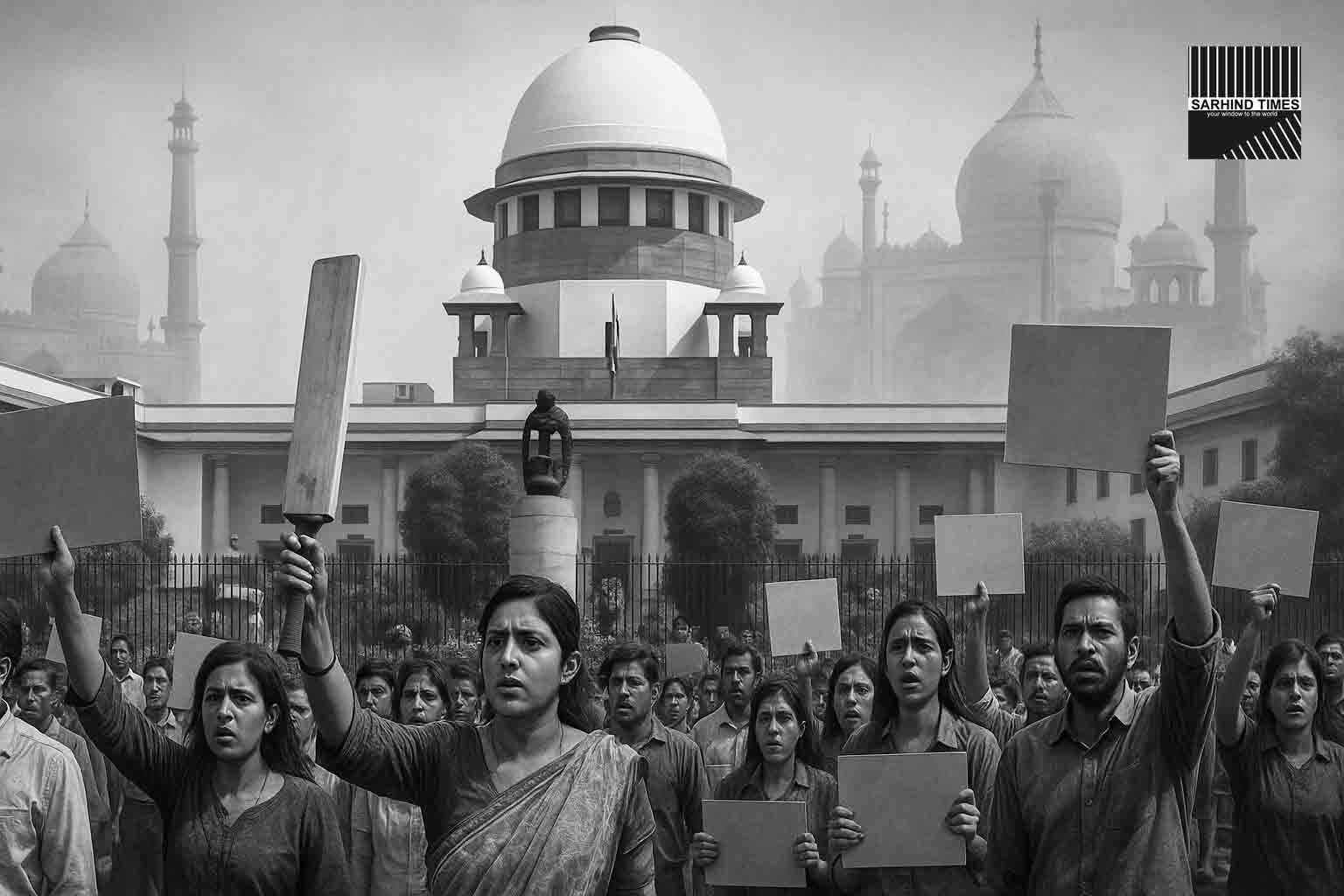The Supreme Court of India is set to deliver its interim order today on a series of petitions challenging the Waqf (Amendment) Act, 2025, a law that has ignited intense political, religious, and constitutional debate. For months, protests, public rallies, and legal submissions have underscored the significance of this legislation—not only for Muslim religious institutions but also for India’s secular framework.
The interim ruling is being closely watched as it could set the tone for the eventual final verdict and determine how the courts balance religious endowment autonomy with state oversight and accountability.
Background: What the Waqf Act Is
The Waqf Act governs properties dedicated for religious or charitable purposes under Islamic law. These include mosques, dargahs, graveyards, educational institutions, and community spaces that are managed by state waqf boards.
Traditionally, waqf properties have enjoyed strong legal protection. However, critics have long alleged that they suffer from mismanagement, encroachments, and lack of transparency, prompting governments to intervene through amendments.
The 2025 Amendment: Key Provisions
The Waqf (Amendment) Act, 2025 introduced sweeping changes. Some of its most contested clauses include:
- Denotification Powers
- Properties earlier declared waqf by a court, deed, or long-standing usage could now be denotified after government scrutiny.
- Increased Government Oversight
- State governments gained wider powers to review and manage waqf properties.
- Transparency Measures
- Mandatory digital mapping, online registries, and periodic audits of waqf lands.
- Dispute Resolution Mechanism
- A revamped tribunal system aimed at speedy resolution of disputes, but with curtailed autonomy for waqf boards.
The Petitioners’ Arguments
Petitions filed before the Supreme Court have raised several objections:
- Violation of Religious Freedom:
Petitioners argue that the amendment undermines Article 25 and 26 of the Constitution, which guarantee freedom of religion and management of religious affairs. - Excessive State Control:
Critics say the amendment allows the government to interfere excessively in religious endowments, eroding centuries of autonomy. - Selective Targeting:
Muslim organizations claim the law disproportionately impacts waqf properties, while similar endowments of other communities remain outside such tight scrutiny. - Unconstitutional Retrospectivity:
The power to denotify properties already recognized as waqf is seen as arbitrary and unconstitutional.
The Government’s Defense
The Union government has defended the Act on the grounds of accountability and transparency. It argues that:
- Waqf properties are public assets meant for community welfare and cannot remain unregulated.
- Encroachments, fraud, and misappropriation of funds have long plagued the system, necessitating reform.
- Digital records and stricter oversight will protect genuine waqf land from land mafias.
- The Act does not infringe religious freedom but ensures property is used as intended by donors.
Political Fallout
The amendment has become a flashpoint in Indian politics:
- Opposition parties have accused the government of attempting to control minority institutions under the guise of reform.
- Ruling party leaders have countered by portraying the law as a step toward accountability and transparency, emphasizing that no religion is above the law.
- Protests in several states, including Uttar Pradesh, Karnataka, and Telangana, have seen religious leaders, activists, and community organizations demand repeal of the Act.
The timing of the Supreme Court’s interim order is politically significant, coming as India prepares for state elections in key regions with sizable minority populations.
Judiciary’s Role
The Supreme Court is faced with a delicate balancing act:
- Upholding the constitutional guarantee of religious freedom.
- Recognizing the state’s duty to ensure transparency in public assets.
- Preventing arbitrary executive action that could lead to misuse of denotification powers.
The interim order may stay contentious provisions or limit their application until a final judgment is delivered. For judiciary watchers, today’s order will be a litmus test of how the courts view state–religion relations in modern India.
Broader Implications
The case is not just about waqf properties—it has broader consequences:
- Minority Rights: A ruling against the Act could reinforce protections for minority institutions.
- Property Law: The judgment may set precedents for how endowed or trust properties are treated under state oversight.
- Secularism: The decision will likely spark fresh debate on the meaning of secularism in India—whether it means state non-interference or state regulation of all religions equally.
Conclusion
As the Supreme Court prepares to pronounce its interim order, India stands at a crossroads between tradition and reform. The Waqf (Amendment) Act, 2025 represents the government’s attempt to modernize and regulate religious endowments, but it has simultaneously stoked fears of overreach and marginalization.
For millions of stakeholders—waqf beneficiaries, religious leaders, political parties, and civil society—the order will carry immense weight. While not final, it will likely shape the contours of debate, governance, and faith in the years to come.
#SupremeCourt #WaqfAmendment #Law #Politics #ReligiousRights #India #Constitution #MinorityRights #Judiciary




+ There are no comments
Add yours